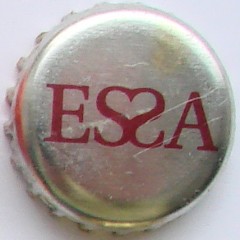 By Tom White
By Tom White
There’s a kid in my class who I’ll call Lee because that’s not his name. Lee comes to me from a household that can generously be described as “disorganized.” He consistently arrives hungry, tired and edgy. His study habits are non-existent and he lacks every social skill you can imagine. Nevertheless, I like Lee and I enjoy the challenge of working with him. He’s the first student I think about in the morning and the last one I worry about at night.
But there’s one thing about Lee that I can’t stand: he puts absolutely no effort into any assessment. He knows that tests are completely independent activities; I won’t help him or interfere with his lack of motivation. So he writes random answers without thinking and finishes as his classmates are just getting started.
It’s frustrating.
As you might imagine, Lee’s SBA results from last year were as low as possible. And unless something unexpected happens, I’m predicting more of the same this year.
Last week Mark wrote a brilliant post summarizing the reauthorization of ESEA. No Child Left Behind is no more; in its place we have the “Every Child Succeeds Act,” or ESSA.
Thank God. Because one of the changes concerns the use of standardized test scores in teacher evaluation. To be clear, NCLB didn’t require their use per se, but the Obama Administration granted waivers from the impossible mandates of NCLB to those states that cooperated with their education agenda. And a big part of that agenda was evaluating teachers based partly on their students standardized test scores. Washington State alone refused to do so and paid dearly. We didn’t get the waiver. Consequently, most of our schools are labeled “failing,” including mine.
Under ESSA, individual states regain the authority to figure out how to evaluate teachers. Here in Washington, we use TPEP, which does include a “Student Growth” component, but teachers and administrators are directed to figure out the most appropriate assessments from which to gauge that growth. And since those administrators work in the same buildings as the teachers they evaluate, they’re aware of the children behind those test scores, which is important, especially with children like Lee.
That’s as it should be. I like working with students like Lee. And I have no problem having someone watch how I work with him and evaluate my performance based on that observation. Better yet, watch me and tell me how I can do it better. But using his standardized test scores to evaluate my work is utterly unfair.
So I welcome ESSA. As Mark pointed out, it’s a vast improvement over NCLB, as well as the waiver system that exempted most states from the ridiculousness of NCLB. Especially in the area of teacher evaluation.
I think it is an improvement, though I notice that the way that some media are spinning it (while generally positive) frequently mentions “reduced penalties for failing schools,” which is a sound-byte incomplete representation of what is really there. I see this not as a “reduction of penalties” but an open door toward shifting from a penalty to at least the opportunity to focus on remediation and supports rather than punishments.
I worry that this one sound-byte about “reduced penalties” communicates “reduced accountability” to those who don’t have/take the time for nuance. Rather, I interpret it as different and hopefully better accountability.